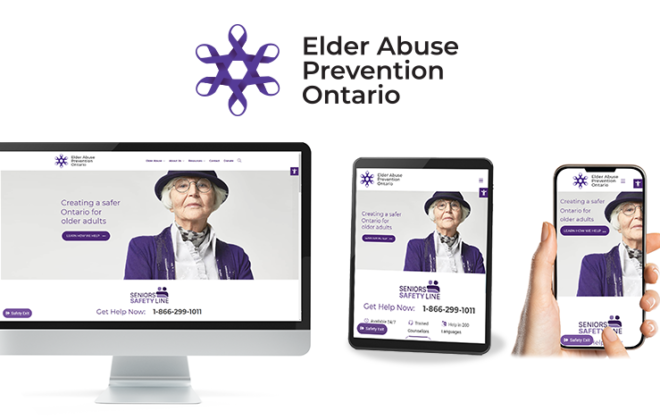Senior Immigrant Women at Risk of Economic Abuse
Senior immigrant women face unique risks of economic abuse because of their gender, age, and the experience of immigration. Norms related to gender, age and money often reinforce women’s economic dependencies on others. In addition, immigration policies and structures can create senior immigrant women’s reliance on families for income [1]. These experiences can be further compounded by limited income, savings, and pensions because of the lifelong impact of the gender wage gap [2].
To better understand this under-researched area, WomanACT conducted a literature review and community-based research with senior immigrant women and service providers to better understand the experiences of economic abuse among senior immigrant women.
Register Now for the Upcoming EAPO Webinar
Senior immigrant women’s experiences of economic abuse
Senior immigrant women experienced various forms of economic control and exploitation, including family members and partners controlling access to their money, withholding necessities, such as medication and food, excluding them from financial decisions and setting up bank accounts or loans in their names without their consent. Women described being used for childcare and household work in the homes of their families. Economic abuse was often accompanied by isolation. Isolation was used to prevent senior immigrant women from learning about their rights or sabotaging their efforts to be more financially independent, such as preventing women from learning English or seeking work.
Economic abuse against senior immigrant women was perpetrated by multiple sources, including spouses and adult children. Women indicated that, at times, multiple family members witnessed or were aware of the economic abuse. Women also shared that over time, other family members adopted, minimized, or normalized the abusive behaviors.
Service providers and women shared that it was difficult to identify these behaviors as abusive because of gender and age norms related to money. For example, there are notions that senior women do not need money or should not have control of the money if they are not the primary earner in the household. One research participant reported that there is a common belief that senior women should have someone else manage their finances because of their unique vulnerabilities to economic abuse.
The impacts
Senior immigrant women discussed the impact of economic abuse on their long-term economic security and ability to meet basic needs, such as stable housing and food. Women also spoke about their diminished health due to malnutrition and their exhaustion because of caregiving expectations and responsibilities.
The emotional impacts of experiencing economic abuse from adult children was a common theme across the research. Feelings of sadness and disbelief about their adult children’s behaviour were shared by women. Women also described being hesitant to do anything that would result in negative consequences for their children.
Barriers senior immigrant women face in seeking help
A lack of knowledge of services and language barriers were reported as barriers to seeking help. These were exacerbated by isolation and reliance on abusive sponsors for information. Senior immigrant women also feared to be separated from their family, have their immigration status jeopardized or access to their grandchildren taken if they were to speak up about the abuse they were experiencing.
The understanding of economic abuse was also culturally contextual and often based on gendered norms. Because of this, the terminology used by senior immigrant women to describe or define their experiences of abuse may differ from that of service providers.
What is needed?
In addition to increased awareness and understanding of senior immigrant women’s unique experiences of economic abuse, women discussed the need for targeted outreach and wrap-around supports. Outreach to senior immigrant women should include religious and community spaces. Supports for senior immigrant women should also reflect the various needs of senior immigrant women, including supports with settlement, language skills, access to income, stable housing and community connections.
References:
[1] Matsuoka, A., Guruge, S., Koehn, S., Beaulieu, M., & Ploeg, J. (2012). Moving Forward: Prevention of Abuse of Older Women in the Post-Migration Context in Canada. Canadian Review of Social Policy / Revue Canadienne De Politique Sociale, 2, 68–69. https://doi.org/https://crsp.journals.yorku.ca/index.php/crsp/article/view/34745
[2] Moyser, M. (2019, August 30). Measuring and Analyzing the Gender Pay Gap: A Conceptual and Methodological Overview. Statistics Canada. https://www150.statcan.gc.ca/n1/pub/45-20-0002/452000022019001-eng.htm
Read the full report
The Senior Immigrant Women at Risk of Economic Abuse project conducted community-based research into senior immigrant women’s experiences of economic abuse. Full report: Economic abuse among senior immigrant women: Literature and research report
Guest Blog from: WomanACT
The Woman Abuse Council of Toronto (WomanACT) is a policy and planning body that works collaboratively to end violence against women and advance gender equity through community mobilization, coordination, research, policy, and education.





